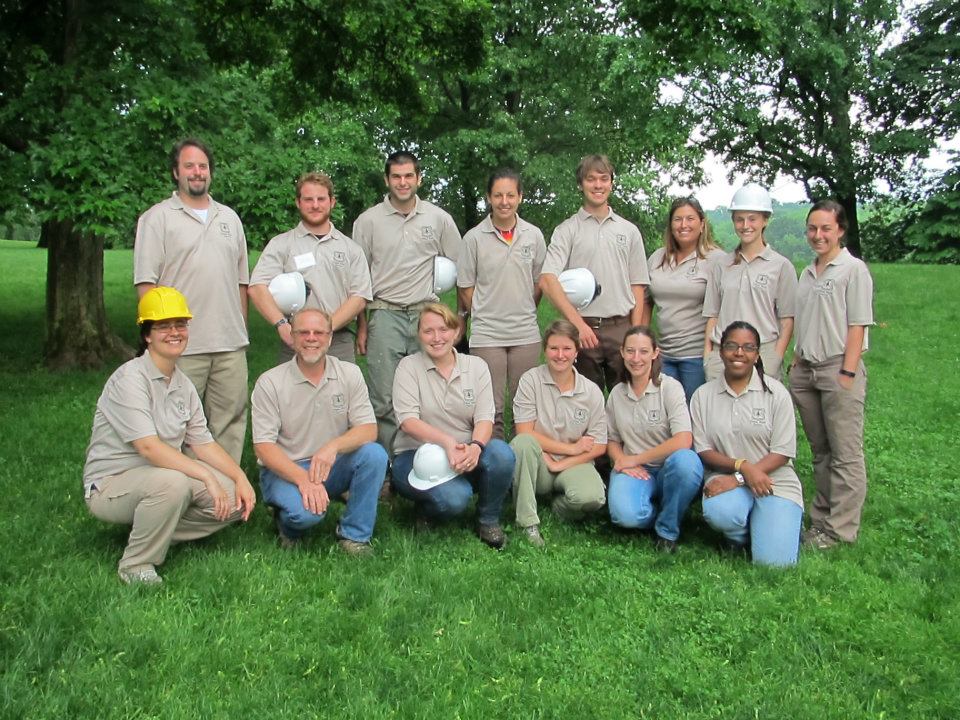
A team of researchers that includes Delaware’s urban forestry staff and student interns attended a recent training session at Pennsylvania’s Morris Arboretum. 200 sites in New Castle County will be included in the first-of-its-kind regional study.
Forest Service Studying Diversity, Size of Delaware`s Urban Forest
NEW CASTLE, DE, May 22, 2012 – In a first-of-its-kind study for this area, the U.S. Forest Service’s Philadelphia Field Station will establish 200 sites throughout New Castle County this summer in an effort to precisely measure and quantify how urban trees can improve air quality, save energy, reduce storm runoff, and even increase property values.
“Urban forests are crucial to the livability of cities and suburbs, and they play an essential role in the ecosystem,” according to Michael T. Rains, Director of the Forest Service’s Northern Research Station. “With studies such as the Urban Ecosystem Assessment, the Forest Service is contributing to healthier and more sustainable communities.”
Forest Service researchers and staff will train college students and graduates to collect data on permanent field plots that will be monitored for change over time. The Urban Ecosystem Assessment will generate fresh information on the diversity, size, and condition of trees in 200 random sites across the county, including public and private property. The data will be used to calculate the overall benefits, or “services,” the urban forest provides to public health and the economy, including air quality, energy conservation, and property value. A similar study is being conducted in Philadelphia.
“This first study by the U.S. Forest Service in the region will help us convey the great value that our natural beauty brings to residents,” said Paul Clark, New Castle County Executive. “From this information, we can begin to set priorities and plan for its long-term protection.”
The 200 sites identified for the study include private land. The Delaware Center for Horticulture is currently mailing notices asking landowners for permission for research crews to enter private property. Crews will not enter homes and they will not damage any trees in the course of data collection. They will need about one hour to measure trees and collect information.
“This is a first-of-its kind project encompassing the entire region, and the information it produces will help officials as well as private landowners manage trees more efficiently and better understand the benefits urban trees provide,” according to Dave Nowak, a project leader and research forester for the Northern Research Station. “Property owners can support this effort by allowing our crews brief access to their land.”
The study, which will be conducted in cooperation with New Castle County, the Delaware Center for Horticulture, the City of Wilmington, the University of Delaware, the University of Pennsylvania, City of Philadelphia, the Delaware Department of Agriculture, Delaware Forest Service, and the Delaware Department of Natural Resources and Environmental Control, will also evaluate the potential risk and vulnerability of city trees to insect and diseases.
The mission of the U.S. Forest Service is to sustain the health, diversity, and productivity of the nation’s forests and grasslands to meet the needs of present and future generations. The agency manages 193 million acres of public land, provides assistance to state and private landowners, and maintains the largest forestry research organization in the world. The mission of the Forest Service’s Northern Research Station is to improve people’s lives and help sustain the natural resources in the Northeast and Midwest through leading-edge science and effective information delivery.
